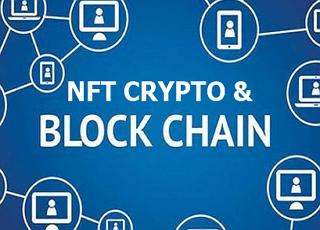Is the NFT crypto and finance be decentralized by regulators?

We've already analyzed the rise of NFT crypto (Non-Fungible Tokens) and Decentralized Finance (DeFi) in some of our other articles. You may remember that someone paid a whopping 69 million for a single NFT crypto item.
It hasn't been too long for the Financial Action Task Force (FATF) to notice that. The FATF is a global regulatory agency that targets cross-border transactions and various other money laundering issues. As the FATF has just published their latest guides to cover also DeFi, we want to provide you with an overview of these guides.
The most critical FATF statement mentions no difference between traditional financial services providers and Virtual Asset Service Providers (VASPs) in complying with anti-money laundering regulations. This is an apparent attempt to regulate decentralized exchanges that enable peer-to-peer transactions in the virtual assets - NFT crypto environment.
This is clear evidence of regulators' struggle to keep pace with the blockchain industry's rapid development. They consider this area as a money-laundering haven with a very high taxation potential.
However, regulators have to put up with a considerable challenge, as this new industry's structure is different from traditional financial services. The most significant difference is the absence of middlemen in these transactions. There's no need for a "trusted" organization to facilitate these transactions. Two parties can complete transactions between them in liquid market exchange.
Funny enough, the regulators show concerns regarding money laundering via blockchain technology when, in fact, "analog" transactions bear a much higher risk and cause more significant problems.
The fact of the matter, the U.S. dollar is the asset most illicit transactions are based on worldwide. The FATF has a difficult time keeping tabs on this phenomenon. The value of global money laundering is somewhere between $800 billion and 2 trillion US.
NFT crypto and analysis of the blockchain transactions
The very nature of NFT crypto on blockchain makes it much safer. All transactions are automatically recorded in a public ledger, so there's no way to erase these records. Since this makes it impossible to do anything illegal, the big question lies beyond this intention of regulating an area that's so difficult to evade.
Meet Chainalysis, a company that tracks and analyzes financial transactions that involve blockchain. These guys are very good at what they do, and you can rest assured.
Chainalysis has created a method of linking back all transactions to the entities that initiated them. This method works for both individuals and institutions. This company can find out who began these transactions and who received the money.
The IRS works together with Chainalysis to identify individuals and companies that seek to evade taxation with digital assets such as NFT crypto. This means that one would be stupid to try to launder money via blockchain systems.
Considering this determination of the regulators to prevent anything illegal in this area, anyone involved in DeFi should pay attention to the latest developments. They'll probably have to put up unnecessary restrictions and added costs when actual money laundering occurs elsewhere.
DeFi is the next generation of the finance industry. NFT crypto is nothing but the "democratization" of collectibles and artwork, a class beyond regular investors' reach.
Even though many investors have a hard time understanding NFTs and DeFi, these concepts are here to stay, as they will become multi-billion and multi-trillion markets.
Related articles
Trading signal service for you!
Introduction to Non Fungible Tokens